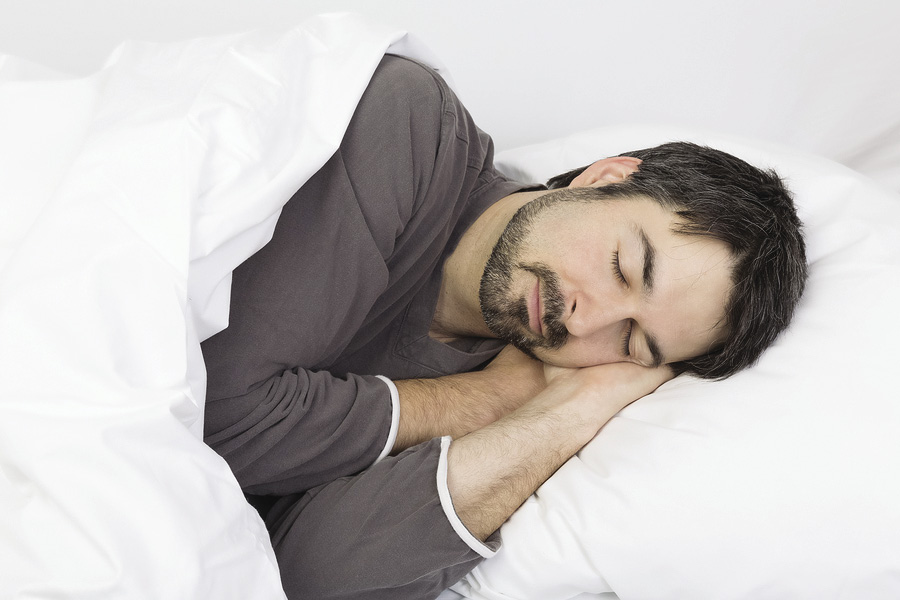One of the great mysteries of human existence is our necessity for sleep. But why do we need it? We may never fully understand why, but we do know there is a succession of chemical reactions within the body that triggers wakefulness and sleep to keep the body healthy and balanced.
Circadian rhythms are the 24-hour cycle of which all living beings are internally wired based on environmental cues. Humans have always relied on our circadian rhythms to regulate our sleep cycles, due to our exposure to light and dark. The moment we open our eyes in the morning, nerve pathways in the eye stimulate the area in our brain called the hypothalamus. A series of chemical processes then begin the sleep-wake cycle. Light hits your retina, which increases cortisol levels and body temperature to help you wake. Then, when night falls and darkness settles on the eye, melatonin is released from the pineal gland in the brain. At night, when your bed looks so inviting, that is melatonin at work. When our levels of melatonin or light exposure get off track, we see sleep disturbances.
There are many factors that play a role in the disruption of melatonin production. Prescription and over-the counter drugs, traveling across multiple time zones, aging, diet and night shift-work all conflict with a healthy night’s sleep. When we travel across time zones or work at night, the brain essentially loses cues from the environment that trigger the chemical reactions that keep the body in tune with natural circadian rhythms. Same goes for artificial light at night, which is why you should reduce screen time in the evening. Light from computer screens, televisions, and the lighting in our homes all work against sleep. Light being obtained through the retina and subsequent neural pathway is telling the hypothalamus that it is still daytime, therefore inhibiting the release of melatonin.
More and more research is exposing the huge role diet plays in a healthy night’s sleep. Being overweight and having a diet low in healthy fruits and vegetables all result in sleep disruption. Although there are many foods that naturally contain melatonin, preliminary studies reveal that people who consume a diet high in a variety of fruits and vegetables have little to no problem getting a good night’s sleep.
Food and exposure to natural daylight and darkness are crucial, but when these are not possible, most people turn to supplementation. Although supplementation is viewed as the cure-all for insomnia, few studies have proven this assumption. Melatonin supplements seem to primarily benefit those who tend to have difficulty falling asleep in the evening (versus those that have no trouble falling asleep but wake in the middle of the night), such as those suffering from jet lag and people who work at night. There is very little research on the long-term effects of melatonin use, but in the short-term, it has been deemed quite safe. A typical dose of around 1-5 mg seems to be the most beneficial. However, if you experience grogginess the morning after usage, you should probably reduce your dosage or avoid supplementation.
Don’t disregard melatonin as merely a sleep inducer. Recent research has uncovered multiple functions it performs in the continuation of our health, although more research is needed. According to a Food and Nutrition Research study, titled Dietary factors and fluctuating levels of melatonin, “In addition to its regulatory role, melatonin has antioxidant capacity, immunomodulatory potency, and also appears to be protective against a variety of cancers…”




